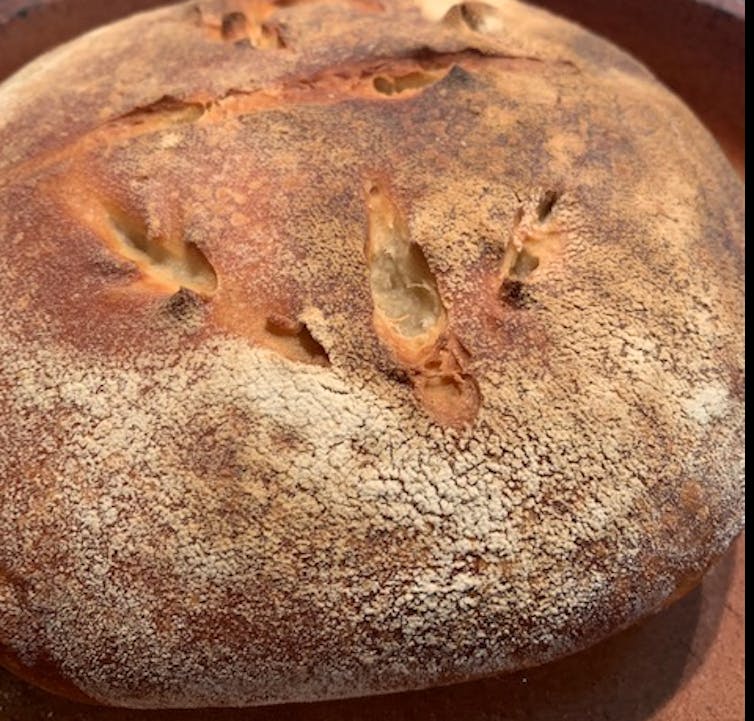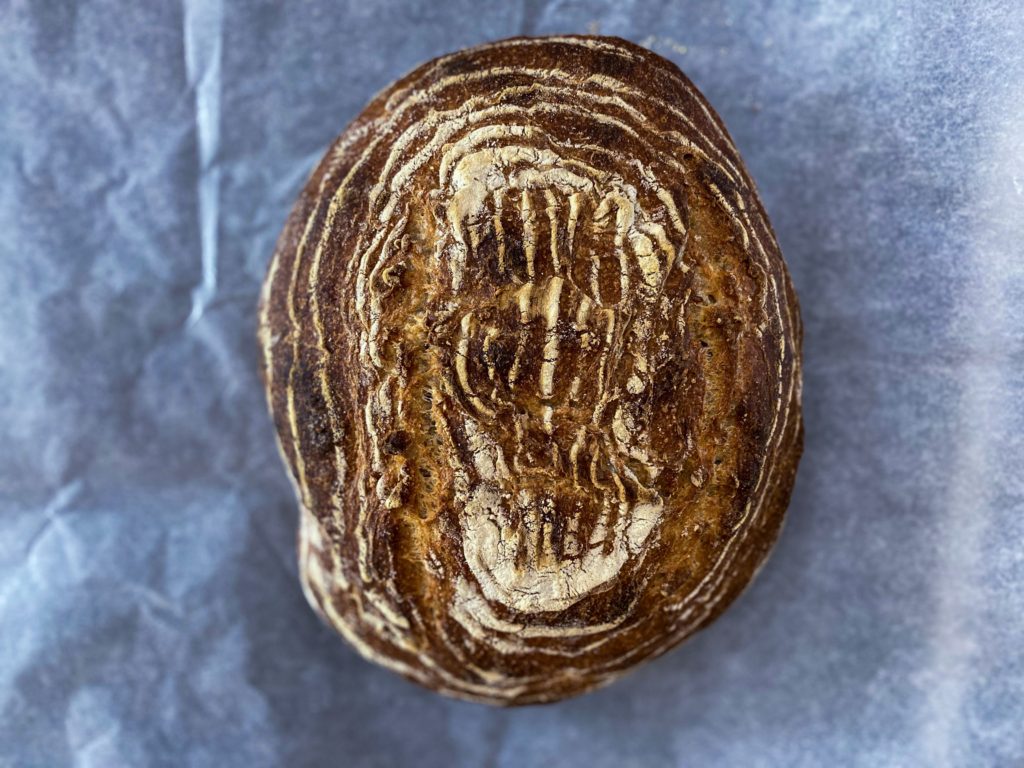…baking bread allows us to reconnect to our place in history, and one another.
Your social media feed has likely been filled with images of well-lit fluffy, crusty and flour-dusted loaves of bread. Whether it’s banana, focaccia or sourdough – bread has emerged as the baked-good champion of the lockdown. Widespread national flour and yeast shortages attest to the popularity of baking as a lockdown coping strategy, with bread recipes topping recent search engine hit lists.
Baking allows you to engage in a process – something with a beginning, middle and end – so you feel like you have accomplished something tangible, with a delightful carby end-product. People have noted that kneading dough can trigger a sort of zen-like calm, forcing the anxious mind into the present. These explanations as to why people have turned to baking ring true, but underneath them are less obvious but deep-rooted reasons as to why bread specifically is officially #lockdowngoals.
Baking bread connection
The simple doughy stuff is enduring and ubiquitous. It was vital in the formation of early societies. The cultivation and domestication of wheat encouraged humans to give up their nomadic lifestyle and take up farming, forming settlements that gave rise to towns and increasingly sophisticated forms of society. Archaeologists have found evidence of human preparation of bread from over 14,000 years ago – the end of the Stone Age. Variations of it can also be found pretty much everywhere around the world, from South Asian parathas to Jewish Challah and every other flatbread and loaf in between.
For those of us stuck at home, part of the anxiety felt is due to feeling flung out of time itself –– the world is on pause. As economies stagnate and public life ceases, baking bread allows us to reconnect to our place in history, and one another. In these unprecedented times, we need a common language to speak across the national and cultural borders this pandemic has traversed.

When we think about socialising and community, we think of breaking bread together; even the history of this term reveals the central role of bread in our conceptions of community. In Biblical mythology, breaking bread was a metaphor for sharing blessings. However, as we currently find ourselves unable to do this in person, it makes sense that we do it now in the only communal space left to us – online. The explosion of baking hashtags and instaposts demonstrates that in our digitally enabled world the food we make is consumed twice: once in real life, and once again online.
Read more… What 3,000-year-old Egyptian wheat tells us about the genetics of our daily bread
French critic Roland Barthes claimed that food could be “read” like any written text. Posting photos of the bread we bake is partially about self-presentation; it is creating a narrative about our own lives – but it is also a way to speak to one another. There is a thriving culture of online bakers sharing tips on how to get that sourdough just right, how to make a healthy loaf, or how to get started if you have never made bread before. Likewise, novice and seasoned bakers are sharing their successes on the internet.
Domestic nostalgia
In this unique moment in history, bread conveys several meanings. By baking it, we can reassure ourselves we are OK in lockdown because we can still access the sustaining pleasures of the domestic. The warmth and security it inspires are invaluable when our public spaces have been deemed dangerous. The agelessness of bread conveys the simplicity and knowability of the past, it roots us back into a recognisable narrative of history. This is a turn toward nostalgia – a looking back for a time that came before, a time that feels less uncertain.
Brexit also caused these kinds of nostalgia, driving people back to the allotment to grow their own produce, and reinvigorating the “Dig for Victory” spirit of the second world war. The antidote to anxiety is often simplicity and certainty — two vital ingredients in the nostalgic impulse.
There are also more sinister urges at play when it comes to our renewed interest in bread. Baking bread invites us to rehearse post-apocalyptic fantasies of survival, self-sufficiency and regression.
If society collapses, we tell ourselves we can still make and feed our families and ourselves something wholesome and nourishing. This same catastrophising impulse induces panic-buying and hoarding – a common response to crises. These doomsday scenarios conjure images of a society that resembles older, more basic forms of life. In light of these regressive fantasies, our current fascination with food thought to have been first invented in the pre-Neolithic period makes even more sense.
Times of national and global worry can trigger a bizarre and somewhat morbid fascination with the end times. Moments like this can cause terrible anxiety, but also a burning curiosity to witness the coming disaster — a hungry desire to see what it might look like if it all came crashing down. This may go some way to explaining why so many of us have turned to pandemic literature and film in the lockdown – Steven Soderburg’s Contagion (2011) is suddenly popular on streaming platforms. Apocalyptic fantasies contain both pleasure and fear.
So while it may seem like bread is the simplest of foods, it conveys a multitude of meanings, and baking it fulfils several practical, psychological and social functions. All in a day’s work, for the dependably humble loaf.
Muzna Rahman, Lecturer in English, Manchester Metropolitan University
This article is republished from The Conversation under a Creative Commons license. Read the original article.

